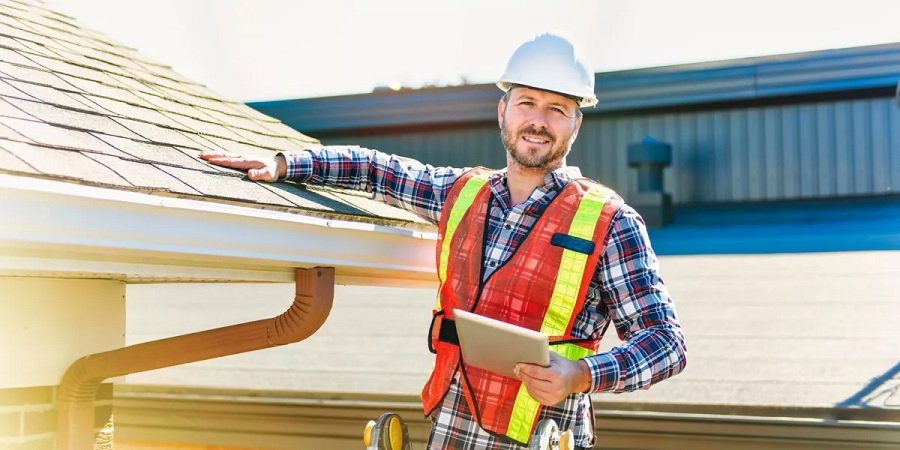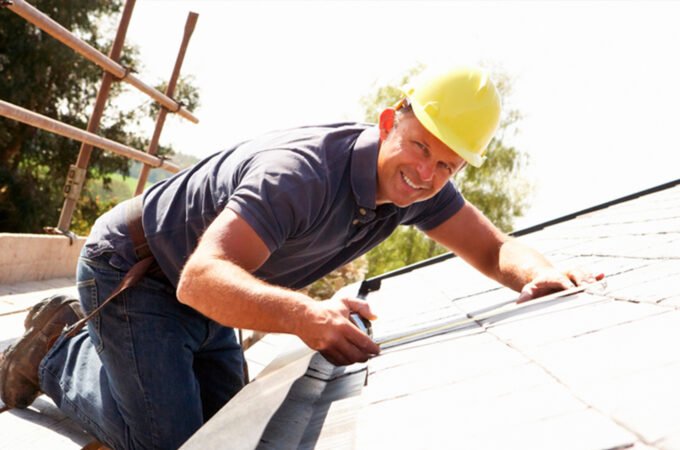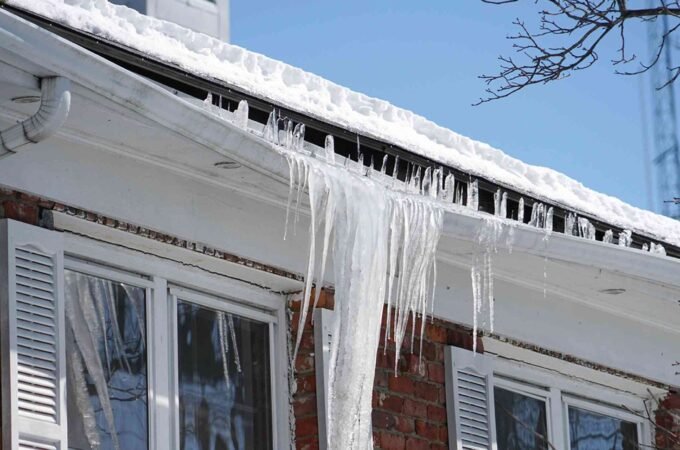
Top Tile Roofing Contractors You Can Trust for Quality Installations and Repairs
Table of Contents
ToggleWhy Choosing the Right Tile Roofing Contractor Matters
Choosing the right tile roofing contractors is critical for ensuring that your roof not only enhances the aesthetic of your property but also withstands the test of time. Investing in your roof is an investment in your home’s protection and longevity. Experienced tile roofing contractors can ensure a well-installed roof that provides energy efficiency, reduces heating and cooling costs, and significantly boosts your property’s market value. Conversely, hiring unqualified contractors can lead to numerous issues, including leaks, mold growth, and structural damage, costing homeowners thousands of dollars in repairs or premature replacements. Therefore, it is essential to approach the hiring process with thoughtfulness and attention to detail.
The Long-Term Benefits of Quality Installations
Quality tile roofing installations yield long-term benefits that stretch beyond immediate aesthetic upgrades. Homeowners enjoy enhanced durability, as high-quality tile roofs can withstand harsh weather conditions, including hail, high winds, and extreme temperatures. Furthermore, tile is naturally fire-resistant, making it a safer choice, especially in areas with heightened fire risks. With the proper materials and installation techniques, tile roofs can last over 50 years, significantly reducing the need for replacement, and showcasing remarkable resilience against environmental conditions. Another critical benefit is energy efficiency. Many homeowners may not realize that certain tile types have inherent qualities that can help regulate indoor temperatures. For instance, clay tile roofs can reflect solar rays, reducing heat absorption and minimizing the need for excessive air conditioning in the summer months. The cumulative effect of these benefits contributes to lower energy bills, reduced repair risks, and increased property values, establishing tile roofing as a truly wise investment. Moreover, investing in a reputable contractor can ensure that the roofing materials utilized are of the highest quality and suitable for your specific climate and architectural style. Professional contractors can guide you in selecting tiles that blend aesthetics with functionality, taking into account the design preferences and setting of your home, thereby enhancing curb appeal while ensuring long-term performance.
Identifying Red Flags in Contractor Experience
When searching for a tile roofing contractor, it is essential to be informed about red flags that may indicate lack of experience or unprofessionalism. Firstly, a contractor’s absence of proper licensing and insurance should raise immediate concerns. Licensed contractors are usually well-versed in local building codes and regulations, providing assurance that they are capable of adhering to the legal requirements governing roofing projects. Furthermore, insurance protects you from liability in the event of accidents occurring on your property during installation or repair. Another significant red flag is a contractor’s inability or unwillingness to provide a detailed, written estimate. A reputable contractor should supply an estimate outlining labor, materials, timelines, and projected outcomes. If they are vague or unable to itemize costs, you may want to seek estimates from other contractors. Additionally, substantial reluctance to share references from past customers may indicate a lack of confidence in their abilities or possibly a history of unsatisfied clients. Take note of a contractor’s responsiveness in communication. Contractors who are slow to respond or fail to address your inquiries may not prioritize customer service and satisfaction. Prompt, clear communication is a hallmark of a skilled professional, and a contractor who values your needs and expectations will prioritize keeping you informed throughout the roofing process.
Key Questions to Ask Potential Contractors
When interviewing potential contractors, a set of strategic questions can unlock valuable insights into their expertise, practices, and reliability. In a market filled with options, asking the right questions is essential to making a sound choice.
Uncovering Experience: What to Look For
One of the most important aspects to consider is the contractor’s experience with tile roofing specifically. Ask how many years they have worked with this particular material, and request case studies of previous projects similar to your own. A highly experienced contractor will likely showcase a portfolio of diverse tile roofing installations, emphasizing their adaptability to different styles, budgets, and localized requirements. Inquire about the specific types of tile they offer and work with, including any custom materials that may be essential for your project. It’s also prudent to ask about their training and certifications. Contractors who invest in ongoing education about new techniques, materials, and technologies are likely to provide higher-quality work, as they remain updated on industry standards and ways to maximize efficiency. Furthermore, ask potential contractors about their approach to unexpected issues during a project. This question will reveal their problem-solving skills and ability to adapt. A competent contractor should be able to provide examples of challenges they have faced on past projects and solutions they employed to maintain quality and keep projects on schedule.
Understanding Warranty: What’s Included and What’s Not
Another paramount question to address is the warranty offered by the contractor. Warranties provide a safety net for homeowners against defects and failures that may occur after installation. But not all warranties are created equal. Ensure you inquire about the specifics: what exactly is covered, how long does the coverage last, and if there are exclusions or conditions that could void the warranty. Many reputable roofing contractors offer both a manufacturer’s warranty for the tiles and a workmanship warranty. The manufacturer’s warranty covers the material itself the tile’s performance over time while the workmanship warranty pertains to the installation quality. If there is a problem with the roof’s installation that leads to issues such as leaks or failures, a strong workmanship warranty can save you significant repair costs down the line. Additionally, inquire about the claims process. Reputable contractors should make it simple for you to file a claim in the event that issues arise. If the contractor seems evasive or unclear about warranties, it may be wise to reconsider and seek contractors that value transparency.
Exploring the Different Types of Tile Roofing
Tile roofing has evolved into a diverse range of designs and materials, each offering distinct advantages. Understanding these differences can solidify your choice in selecting the material that best fits your home’s architectural style and environmental conditions.
Clay vs. Concrete: Which Tile Roofing Material is Right for You?
Clay and concrete tile roofs are the two most common types, both providing exceptional durability and aesthetic appeal, but each possessing unique characteristics. Clay tiles are known for their classic elegance and long-lasting properties. They can last for over 100 years when installed correctly and maintained diligently. Their color retains well over time, and they are resistant to fading, making them a fitting option for homeowners seeking a timeless look. However, clay tiles are often heavier than other materials and may require additional structural support during installation. They also tend to be more expensive than other tile options. On the other hand, concrete tiles are typically more budget-friendly while still offering impressive resilience. They can mimic the look of clay, wood, or even slate at a fraction of the cost. Concrete tiles are notably versatile, available in numerous styles, shapes, and colors, which makes them suitable for various architectural designs. While concrete is slightly less durable than clay, it offers a longer lifespan than traditional asphalt shingles, often lasting more than 50 years with proper maintenance. When deciding between the two, consider factors such as climate, personal taste, budget, and the structural capacity of your home. For instance, if you live in a region prone to severe weather, and your home can support the weight, clay may be your top pick. Alternatively, if budget constraints are a concern, or if you desire a range of design options, concrete tile could be the ideal solution.
Design Choices: Enhancing Curb Appeal with Tile Roofing
Tile roofing not only serves a practical function but can also significantly enhance your home’s curb appeal. The variety of designs available allows homeowners to select a style that complements their residence beautifully. The classic Mediterranean look is one of the most popular design applications of tile roofing, characterized by its rounded edges and earthy tones. This style brings complexity and grandeur, often paired with stucco walls and vibrant landscaping to create an inviting atmosphere. Alternatively, homeowners drawn to a more contemporary aesthetic may opt for sleek, angular concrete tiles arranged in different patterns, shifting the perception and personality of their home while maintaining structural integrity. Color choice also plays a pivotal role in enhancing curb appeal. Vibrant red or orange clay tiles can lend warmth, while soft hues of gray or cool blue are perfect for modern, minimalist homes. Consider the overall color palette of your home to achieve a cohesive appearance. Additionally, blending architectural details such as decorative ridge tiles, distinct profiles, or overlapping patterns can further add personality and flair. The selection of tile roofing is vast, and when executed with an astute eye for design, it can be the key feature that transforms your home into a standout attraction.
Maintenance and Repair: Keeping Your Tile Roof in Top Condition
Maintaining your tile roof isn’t just about extending its life; it’s about safeguarding your entire home’s structure and aesthetics. A well-cared-for roof not only contributes to property value but also protects your home from potential water damage and invasive pests.
The Importance of Regular Inspections: Catching Issues Early
One of the best practices for maintaining your tile roof is scheduling regular inspections with a qualified professional. Planning inspections bi-annually or after severe weather events can help catch minor issues before they escalate into significant problems. During these inspections, professionals will assess the condition of your tiles, looking for cracks, damages, or signs of debris accumulation which could compromise the roof’s integrity. Homeowners can also perform visual checks from the ground level using binoculars. Look out for cracked or missing tiles, as well as signs of sagging or misalignment in the roofing structure. Remaining vigilant can lead to early detection of wears and tears, enabling timely repairs which can save money and extend the life of the roof significantly. Moreover, regular cleaning is an essential component of roof maintenance. This task involves removing debris like leaves, branches, and dirt from the roof and gutters. Neglected debris not only poses a risk of moisture buildup and mold growth but can also inadvertently lead to tile as well as structural damage.
DIY vs. Professional: When to Call in the Experts
While DIY tasks may be tempting for some homeowners, tile roofing maintenance and repairs are better handled by the professionals. The complexity of roofing systems requires experts who are trained to handle various types of roofing materials and issues. DIY repairs can lead to further complications if not executed correctly, sometimes resulting in more significant damage and repair costs in the long run. For instance, attempting to replace broken tiles without understanding the underlying structure may result in improper sealing and increased vulnerability to weather elements. Additionally, working on a roof without requisite safety gear and experience poses a significant risk for injuries and falls. Consequently, homeowners should know when to call in the experts. If you suspect leaks, see signs of internal water damage, or if any structural issues arise, it’s time to consult a professional contractor. They have the expertise to conduct thorough assessments and implement necessary repairs safely and efficiently, providing peace of mind. By prioritizing maintenance and addressing repairs proactively, homeowners can ensure their tile roofing remains an enduring feature of their property, adding both aesthetic value and sturdy protection against the elements. In conclusion, selecting the right tile roofing contractor is a crucial decision that influences not only the aesthetic of your home but also its health and longevity. By being informed and proactive, you can transform your roofing project into a rewarding experience that enriches your property’s value for years to come. Whether considering different types of tile materials, assessing contractors, or understanding maintenance needs, informed choices will empower you in your journey toward a top-quality tile roof.






